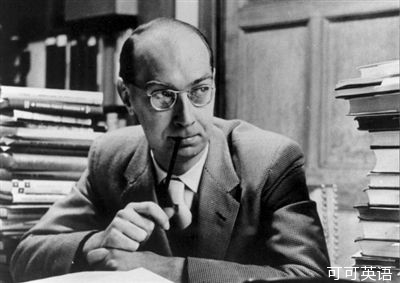Books and Arts; Book Review; Philip Larkin;Library book;
文藝;書評;菲利普·拉金;圖書館藏書;
The Complete Poems of Philip Larkin. Edited by Archie Burnett.
《拉金詩歌全集》阿奇·伯內特編輯。
Philip Larkin's fame could rest on a dozen poems alone. Even while he was still alive, the poet and lifelong librarian at Hull University in the north of England was considered by many to be one of the finest writers of his generation. With his love of jazz, beautiful women and the grey palettes of post-war Britain, his witty, acerbic verse was a fine counterpoint to the more sentimental stuff produced by the London-born poet laureate, Sir John Betjeman. Eminently quotable, Larkin's poetry caught a spirit of middle-class disaffection and quiet rebellion. He became known for the short, aphoristic sayings contained within the four slim volumes of poetry he published in his lifetime, such as the assertion that “Sexual intercourse began/In nineteen sixty-three”. His poems were pithy and to the point; short, but often demanding to be reread.
菲利普•拉金僅憑借幾首詩就早已名聲在望。當他還在世的時候,這位詩人在英格蘭北部的赫爾大學做了一輩子的圖書館管理員。早在那時,他就被人們所認可,是同時代最優秀的作家之一。拉金喜愛爵士樂,鐘情于美女,著迷于戰后英國的消沉生活,他的詩句詼諧機智又尖酸諷刺,與倫敦出生的桂冠詩人約翰•貝杰曼爵士的感傷詩句形成鮮明對比。拉金的詩歌道出了中產階級內心的不滿和反抗,他的詩歌常常被人引用。拉金以短小精悍的警句而出名,一生共出版四本薄薄的詩集,例如他曾寫道“開始云雨吧/在一九六三年”。拉金的詩歌簡潔、精煉、短小,但能令人回味無窮。

This is one reason why the voluminous size of “The Complete Poems” is startling. Its editor, Archie Burnett, has carefully collected all of the poems Larkin ever wrote. Included in the volume are the four published collections and Larkin's previously published juvenilia, but also all that remained unpublished or unfinished, from sketches found in Larkin's archive to poems included in letters to friends.
這也是為什么鴻篇巨著的《詩歌全集》令人吃驚的原因之一。本書的編輯阿奇•伯內特仔細收集拉金寫過的所有詩歌。其中包括四本已經出版的詩集,拉金青年時期發表的詩歌,還有拉金的手稿和寫給友人的信件中包含的所有未發表或未完成的作品。
Mr Burnett presents a very different picture of Larkin from the one by which he came to be known; one that is far more literary, and occasionally far more amusing. A reader can now trace Larkin's development from his allusive Oxford University Labour Club Bulletin efforts “about trees and the sky and the seasons” to his more mature, better-known works. It may be common knowledge that his greatest poem, “The Whitsun Weddings”, took three painstaking years to complete, but it is less well known that during those years Larkin was writing constantly, and continually discarding his efforts.
伯內特別具新意,展現了拉金少為人知的一面;那個充滿著書卷氣,時常還很幽默風趣的拉金。讀者能夠從書中追溯拉金的發展,從他在《牛津大學工黨俱樂部簡報》上引經據典,描寫“關于樹木、天空和季節”的詩歌到他更為成熟,有名氣的作品。眾所周知,拉金最偉大的詩歌《降靈節婚禮》是他在三年時間內嘔心瀝血才完成,但少有人知道在這三年里,拉金一直在寫詩,并不斷否定放棄自己所做的努力。
The advantage of such a comprehensive volume is the possibility of tracing the development of a writer's voice. It is possible to hear in his poem, “On Being Twenty-six” the tone of world-weariness an older Larkin would make into an art form, looking back on “the slag/Of burnt-out childhood” with his familiar tone of regret laced with misanthropy: “Life, you aren't a god, you're a bloody old sod.” He disliked modern poetry, or the vogue for experimentation; even aged 18 he despaired of the lack of wit in contemporary literature: “Nothing like comedy/Can ever be admitted as poetry.” Women continued to remain a mystery to him, even after he left university, and mostly lost the stammer he had had since childhood. Now, instead of dreaming of “The idea of a kiss”, he merely knew his limits: “A bosomy English rose/And her friend in specs I could talk to.”
這部龐然巨著可以使讀者看到作家個人思想的發展脈絡。在《二十六歲》中,可能聽出老拉金對世界感到厭倦的語氣,他將這些感受融入到藝術形式之中。回顧《才思枯竭的童年》一詩,拉金用一如往常的語調表達了后悔和厭世之感:“生活,你不是上帝,你是個殘忍的老家伙。”拉金不喜歡現代詩歌,亦反感實驗主義的風潮;18歲的時候,他就已經對當代文學中缺乏風趣而深感絕望:“什么都比不上喜劇/怎能稱之為詩句” 即使在拉金大學畢業之后,他基本上糾正了從孩童時期就有的口吃,但對拉金來說,女人依然是個謎。現在,不再幻想著“吻的遐想”,他知道了自己本領有限:“一位豐滿的英國美女/但我只能與她戴眼鏡的朋友搭訕。”
However, despite Mr Burnett's efforts, the contrast between Larkin's published poetry and his unfinished efforts remains. Frequently scatological, often crudely misogynistic, some of Larkin's unpublished work makes for uneasy reading. Sketches of poems which rhyme Jung with dung or James Joyce's “Ulysses” with faeces seem intended as private jokes, and they add little to the volume. Larkin himself was aware of this, entitling one series “Dances in Doggerel”. There is a reason why Larkin, normally so particular in his use of words, deemed them unworthy for publication.
盡管伯內特努力彌補,拉金已出版的詩歌和未完成的作品間差距仍然存在。他的作品里時有關于糞便的描寫,對女人痛深惡絕,這些未出版的作品讓讀者讀來感到很不舒服。在一些詩歌的草稿上,拉金將金(Jung)韻和糞便(dung)或將詹姆士•喬伊斯的《尤利西斯》(Ulysses)和糞便(faeces)一起押韻,有意寫成私下里的笑話,這些對提升拉金詩的水平沒有任何幫助。拉金自己對這一點有清醒認識,他將一系列詩命名為“在打油詩中跳舞”。這也是為什么拉金非常注意字詞的選擇,卻認為這些詩不值得出版的原因。
Instead, his finest poems remain his best-loved: ones about his mother overhearing him playing blues records on the gramophone, or of feeling, once a guest has left, “the instantaneous grief of being alone”. They take place on trains or in an empty church, where the atheist Larkin takes off “My cycle-clips in awkward reverence”, and capture life as Larkin saw it, expressing “A hunger in himself to be more serious”. But it speaks of their greatness that these short poems, despite being swamped by so many of his other efforts, still manage to stand out.
然而,拉金依舊最愛他最好的詩歌:一些關于他母親無意中偷聽他在留聲機上放布魯士音樂,或是一位訪客走后自己的感受,“獨處時瞬間的悲傷”。這些故事發生在火車上,或一間空教堂里,無神論者拉金取下“我的回形針在靜默中崇敬”,還是把眼之所及當成生活本身。“他的饑餓更重要”。這些詩歌都自有偉大之處,盡管它們被拉金其他詩歌所淹沒,但仍能脫穎而出。












